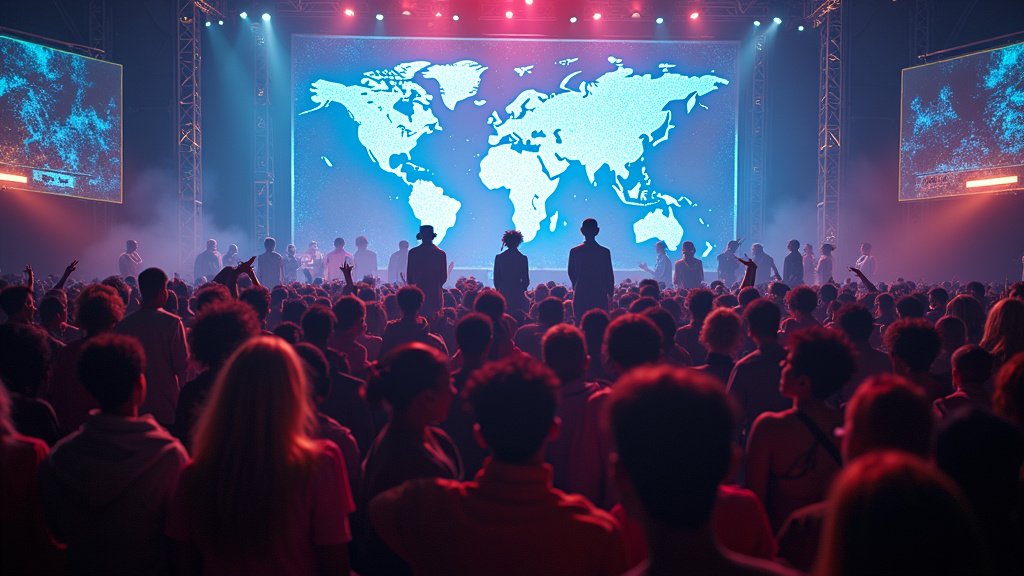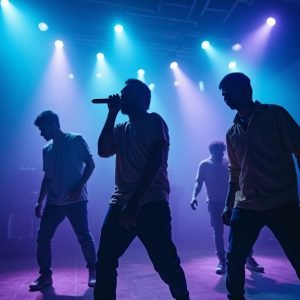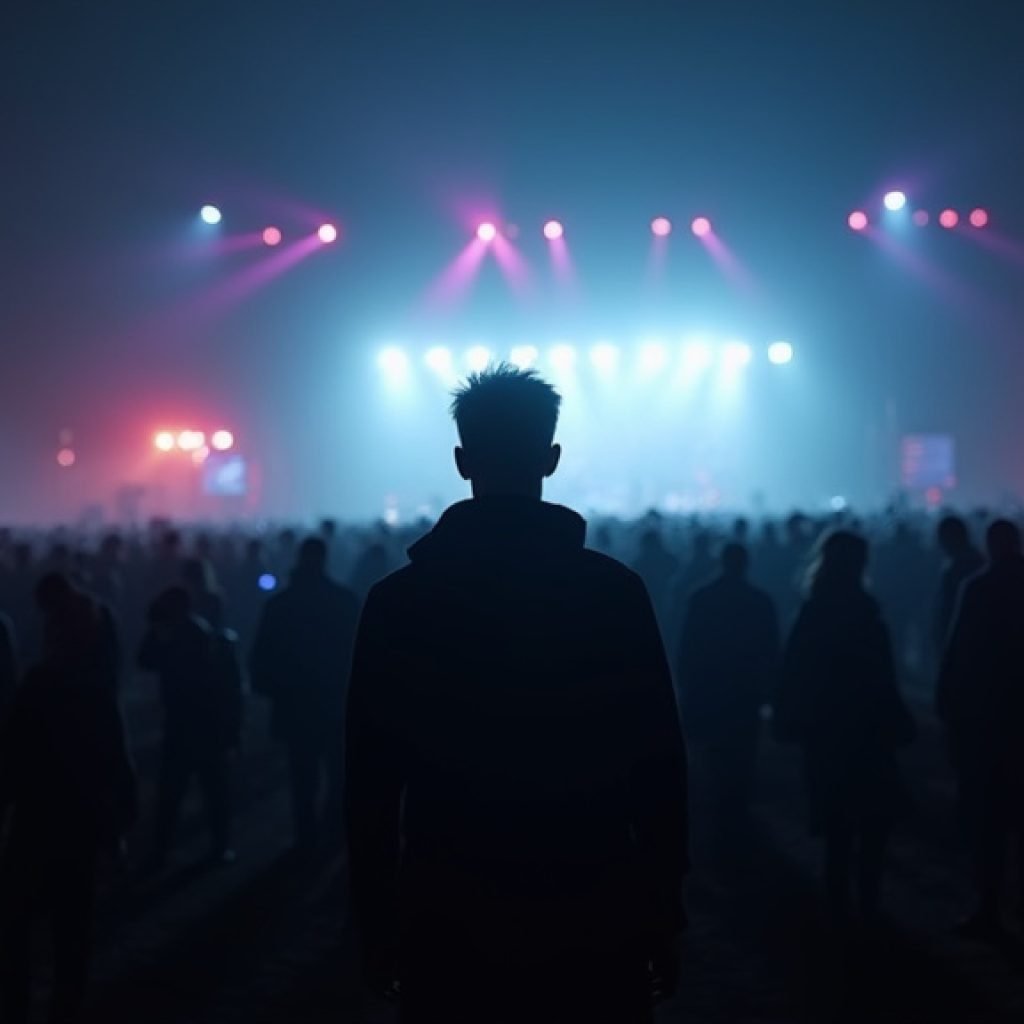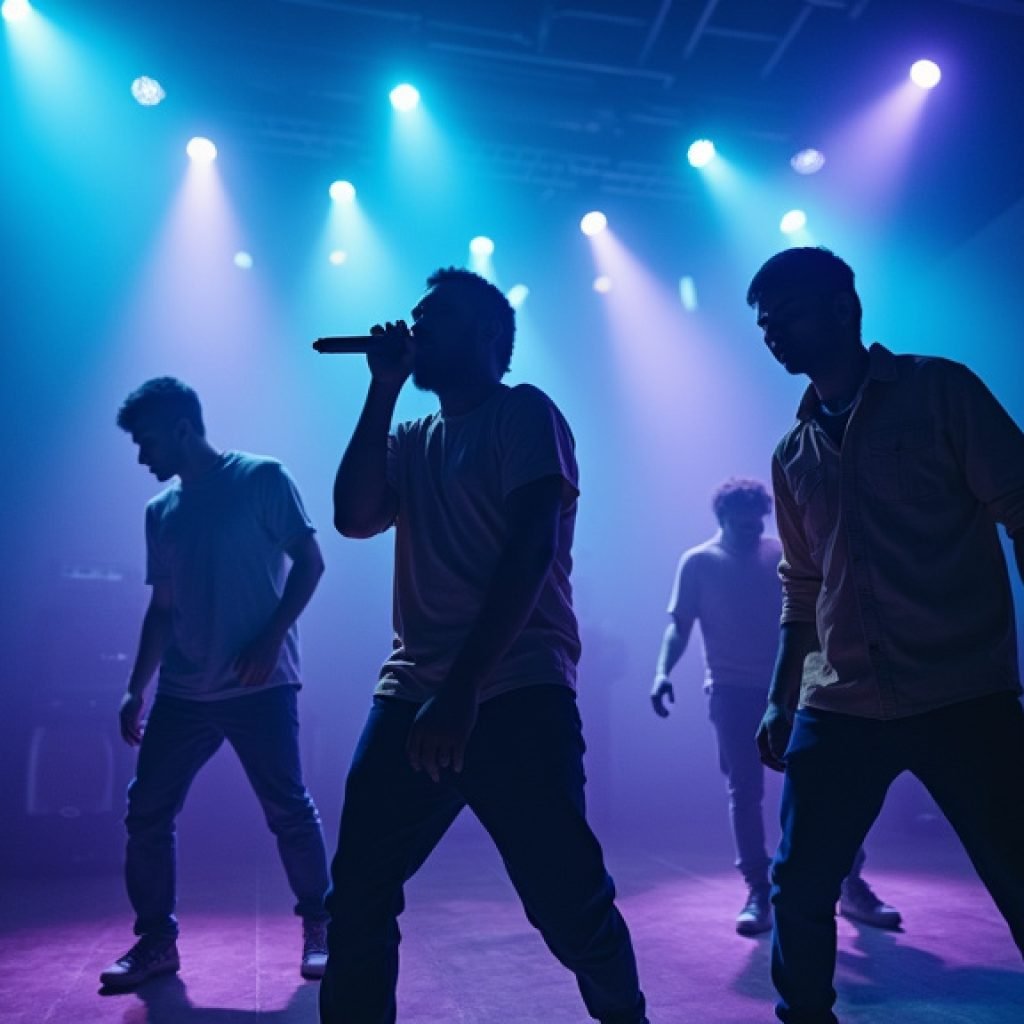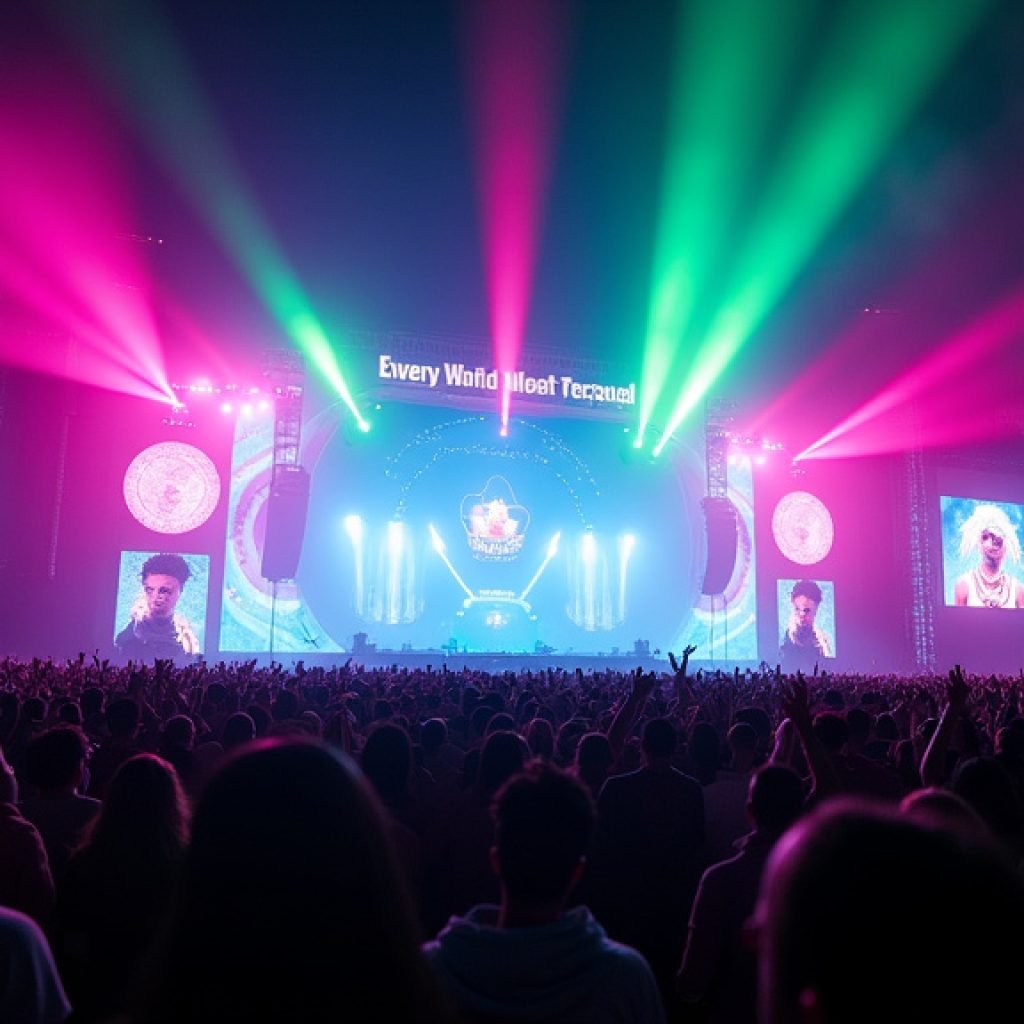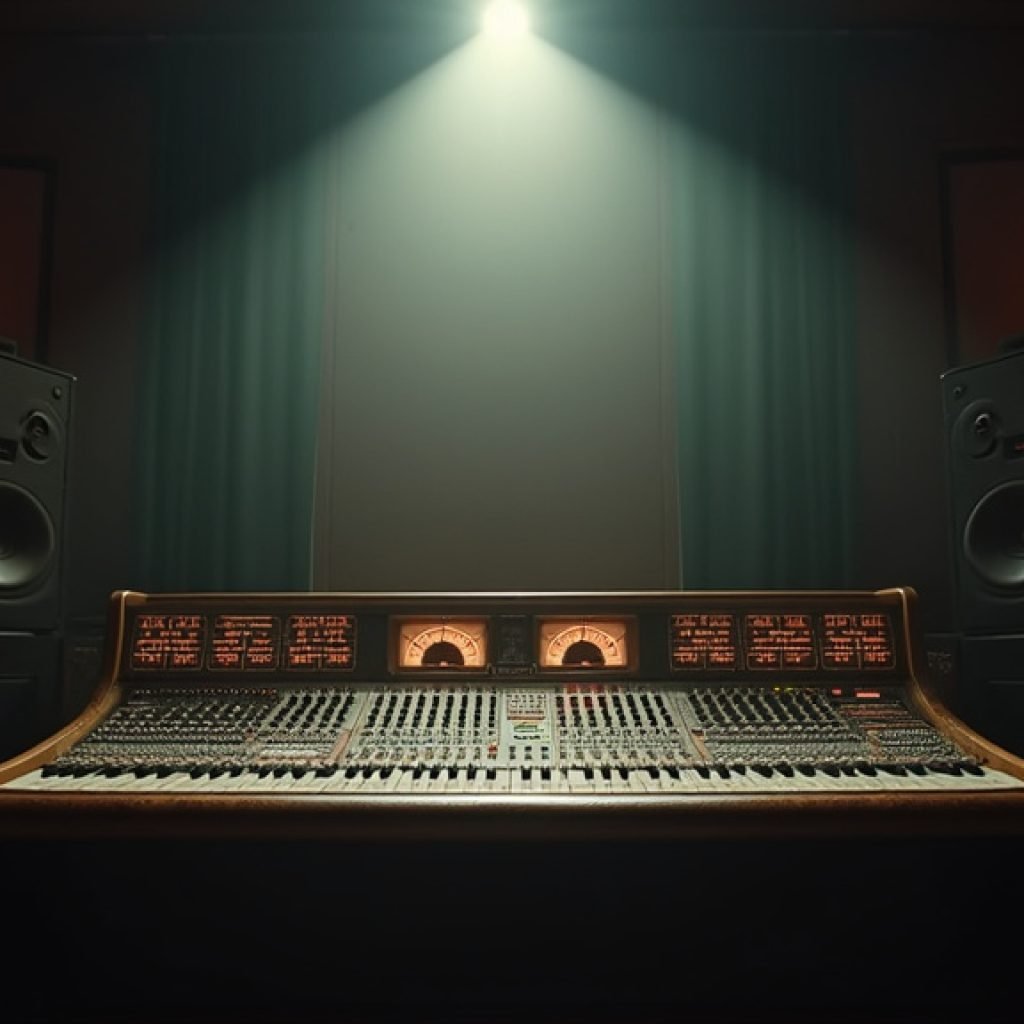The week of August 24, 2025, finds the hip-hop world in a state of continuous, vibrant evolution. Far from a static genre, rap music is a dynamic force, shaped by accelerating technological integration, an ever-expanding global reach, and a renewed emphasis on authentic storytelling and artistic substance. This period highlights how artists are navigating a landscape where digital platforms are paramount, sonic boundaries are blurred, and the very definition of stardom is being redefined. The cultural conversation surrounding hip-hop is amplified across social media and music blogs, underscoring the genre’s persistent relevance and its capacity for reinvention.
Digital Highways and Viral Waves
The most defining trend of 2025 in hip-hop remains the absolute dominance of digital platforms. Streaming services like Spotify, Apple Music, and, crucially, TikTok, dictate how music is discovered and consumed. Short-form video content has become the primary engine for breaking new artists and viral hits; a catchy 15-second hook can propel an unknown rapper to millions of listeners overnight. In early 2025, for instance, rapper Luh Kei saw a massive surge in his fanbase after a brief clip of his chorus went viral on TikTok, leading to millions of new streams. This trend underscores that for emerging talents, mastering the art of creating engaging, shareable content is as vital as lyrical prowess. Over 70% of hip-hop tracks that hit the top charts in 2025 first gained traction on platforms like TikTok or Instagram Reels, a testament to the power of these digital ecosystems.
A World of Sounds: Globalization and Genre Fusion
Hip-hop’s global footprint continues to expand exponentially in 2025. Regional scenes from Africa, India, South Korea, Brazil, and Eastern Europe are no longer niche curiosities but influential forces impacting international charts and playlists. Artists are actively engaging in cross-cultural collaborations, blending their unique sounds with global rhythms. This has led to a rich tapestry of hybrid genres, with Afrobeats, Amapiano, Latin trap, and even electronic-infused hyperpop sounds finding their way into mainstream hip-hop productions. Simultaneously, a strong undercurrent of nostalgia is present, with producers frequently sampling and drawing inspiration from the iconic sounds of the 1990s and early 2000s, resonating with both older fans and a new generation discovering these classic eras.
AI as Collaborator: The New Creative Frontier
Artificial intelligence is no longer an experimental tool but an integrated part of the hip-hop creative process in 2025. AI is assisting artists and producers in everything from beat generation and lyric ideation to mixing and mastering. Platforms are emerging that can create full instrumentals in minutes based on mood and genre prompts, streamlining workflows and opening new avenues for sonic exploration. While AI offers undeniable efficiency, the industry consensus emphasizes that human creativity, authentic storytelling, and emotional depth remain irreplaceable. The most successful artists are those who leverage AI as an assistant, enhancing rather than replacing their unique artistic vision and grit. The AI in music market is projected for massive growth, with hip-hop showing a significant adoption rate, signaling its integral role in the genre’s future.
The Independent Artist’s Ascent and Authenticity’s Reign
In 2025, the rise of the independent artist continues unabated. Empowered by accessible digital distribution services and direct-to-fan platforms, more musicians are bypassing traditional record labels to retain creative control and ownership of their masters. This decentralization fosters a more diverse landscape, allowing authentic voices, particularly from underrepresented communities, to flourish. The emphasis on authenticity also extends to lyrical content; alongside chart-topping trap and drill, there’s a growing demand for conscious rap and nuanced storytelling that reflects real-life experiences and societal issues. Artists are building strong personal brands beyond music, engaging fans through NFTs, Web3 experiments, and diverse entrepreneurial ventures.
August 2025: A Snapshot of Releases and Emerging Stars
As of the week of August 24, 2025, the hip-hop calendar has been particularly active. Major releases punctuate the month, showcasing both established veterans and promising newcomers. The latter half of August saw highly anticipated projects drop, including Ghostface Killah’s “Supreme Clientele 2” on August 22, continuing his legacy with a blend of surreal slang and raw emotion. Also on August 22, Dominic Fike released “Rocket,” Earl Sweatshirt dropped “Live Laugh Love,” and Kid Cudi presented “Free,” offering diverse sounds from introspective to experimental. Erykah Badu and The Alchemist’s long-rumored collaboration, “Abi & Alan,” was slated for release around August 29, promising a unique fusion of their distinct talents. Further cementing the month’s significance, Preservation and Gabe ‘Nandez’ “Sortilège” arrived on August 31, a gritty, cinematic hip-hop experience.
Beyond these specific releases, the broader narrative of 2025 hip-hop is defined by artists who command attention. Superstars like Kendrick Lamar continue to dominate, with his track “Not Like Us” achieving massive streaming numbers and cultural impact. Drake, meanwhile, has maintained his stronghold, evidenced by his numerous wins at the 2025 Billboard Awards and the release of his collaborative album with PartyNextDoor. Emerging talents like Doechii, Central Cee, and Paxslim are also making significant waves, each carving out unique spaces within the genre through viral success, genre-bending sounds, or independent artistry.
Conclusion: A Genre in Perpetual Motion
The pulse of hip-hop in August 2025 beats with the rhythm of constant innovation. It’s a genre that masterfully blends global influences with cutting-edge technology, empowers independent voices, and continues to serve as a vital platform for authentic storytelling. While established artists still command significant influence, the landscape is increasingly shaped by digital virality, genre fluidity, and the entrepreneurial spirit of a new generation. Hip-hop’s journey from its foundational roots to its current status as a global cultural phenomenon is a testament to its enduring adaptability, promising an exciting and unpredictable future for the culture and its music.


